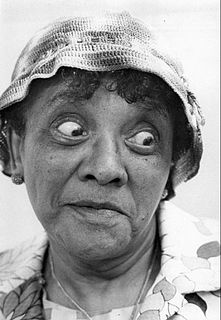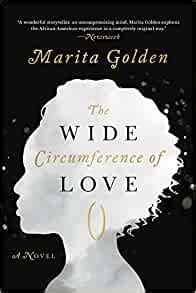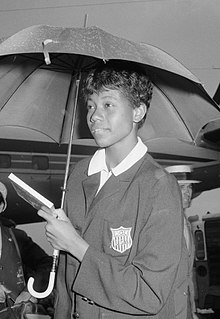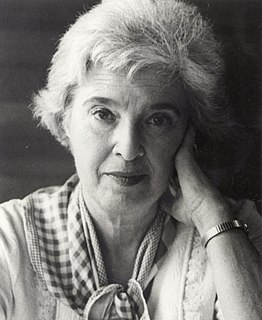A Quote by Moms Mabley
Black women, white women- all of them. I'm colorblind. I don't know the difference. I only know you're a human being and you're my children.
Related Quotes
...black women write differently from white women. This is the most marked difference of all those combinations of black and white, male and female. It's not so much that women write differently from men, but that black women write differently from white women. Black men don't write very differently from white men.
We black women must forgive black men for not protecting us against slavery, racism, white men, our confusion, their doubts. And black men must forgive black women for our own sometimes dubious choices, divided loyalties, and lack of belief in their possibilities. Only when our sons and our daughters know that forgiveness is real, existent, and that those who love them practice it, can they form bonds as men and women that really can save and change our community.
I know black women in Tennessee who have worked all their lives, from the time they were twelve years old to the day they died. These women don't listen to the women's liberation rhetoric because they know that it's nothing but a bunch of white women who had certain life-styles and who want to change those life-styles.
I think empowerment of women is exactly what's happening now, with women being portrayed as human beings, and not just black and white. Men can be the anti-hero all the time, and it's cool, but when women are, they're twisted or messed up or something is wrong with them. I think it's just about portraying women in the world as equals to men, and vice versa.
We need women who are devoted to shepherding God's children along the covenant path toward exaltation; women who know how to receive personal revelation, who understand the power and peace of the temple endowment; women who know how to call upon the powers of heaven to protect and strengthen children and families; women who teach fearlessly.
Hence both women and children must be educated with an eye to the constitution, if indeed it makes any difference to the virtue of a city-state that its children be virtuous, and its women too. And it must make a difference, since half the free population are women, and from children come those who participate in the constitution.
. . . black women . . . are trained from childhood to become workers, and expect to be financially self-supporting for most of their lives. They know they will have to work, whether they are married or single; work to them, unlike to white women, is not a liberating goal, but rather an imposed lifelong necessity.
They wanted black women to conform to the gender norms set by white society. They wanted to be recognized as 'men,' as patriarchs, by other men, including white men. Yet they could not assume this position if black women were not willing to conform to prevailing sexist gender norms. Many black women who has endured white-supremacist patriarchal domination during slavery did not want to be dominated by black men after manumission.
There are many things that black women can continue to do to help black folk. First, black women have historically been among the most vocal advocates for equality in our community. We must take full advantage of such courage by continuing to combat the sexism in our communities. Black women, whether in church, or hip-hop, don't receive their just due. Second, when black women are in charge of child-rearing, they must make ever so sure to raise black children who respect both men and women, and who root out the malevolent beliefs about women that shatter our culture.
The issue of redistribution of resources and wealth needs to resolved systemically, but in the meantime but there are individual spots you can occupy. There are things that you can do on a daily basis that will make a difference in moving the needle in individual lives. When we look at the mentoring of young black kids, for instance, the number-one mentor group is white women. I think after that maybe it's black women, and then white men, and then black men. We can make all kinds of arguments about that.

































